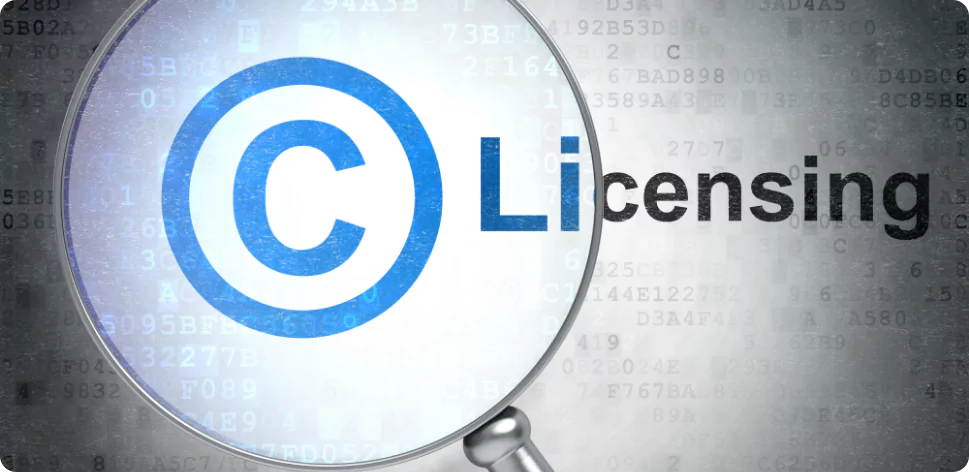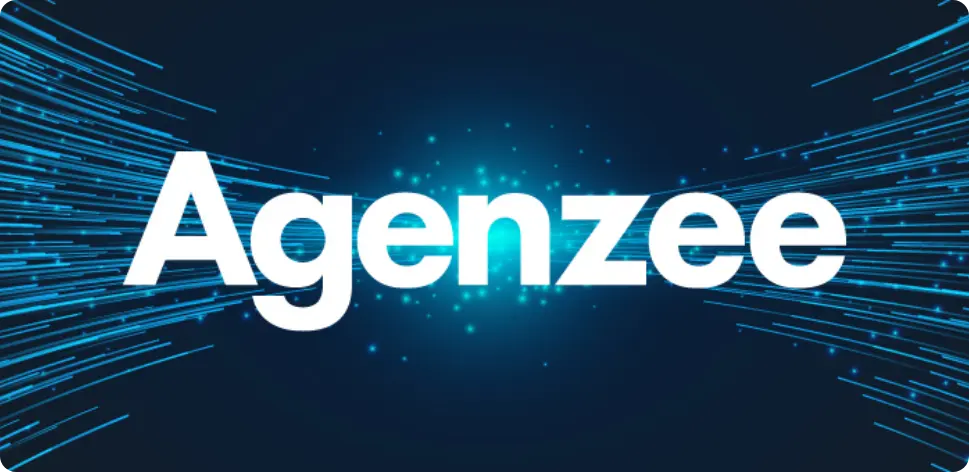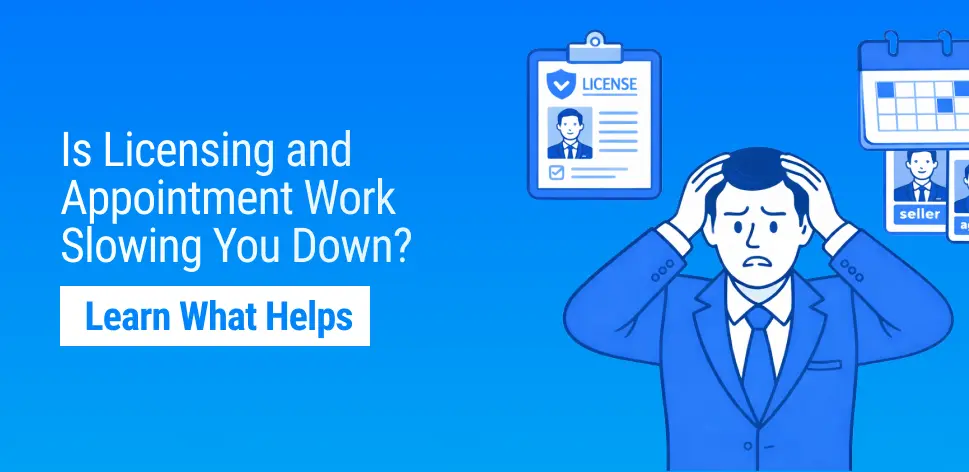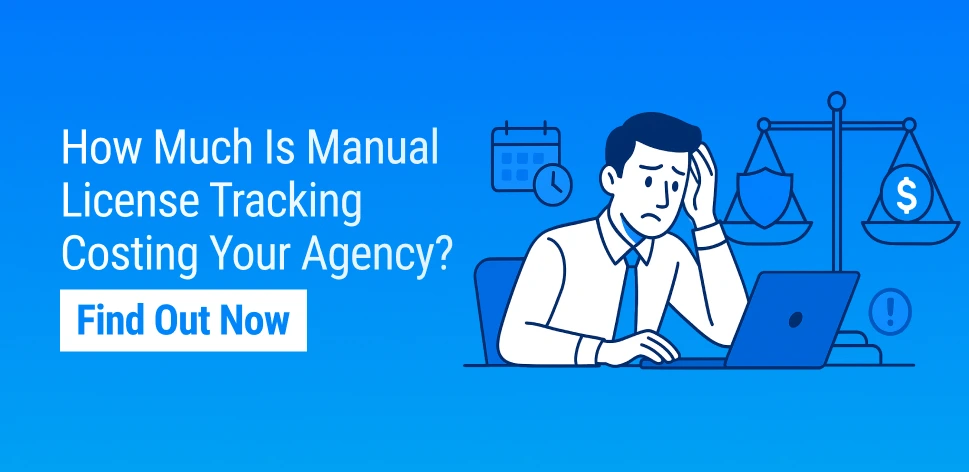Insurance License Background Checks: 5 Facts Agencies Should Know
Understanding the ins and outs of licensing and background checks is paramount for agencies aiming to maintain integrity and compliance.
This brief guide illuminates five crucial facts about the background checking process for insurance producer licenses, offering insights that are essential for navigating compliance effectively.
Knowing these facts will enhance your operational standards and ensure your team is poised for success.
Fact #1: Insurance License Background Checks Are Required by Law
The requirement for background checks is rooted in the desire to maintain high ethical standards within the insurance industry.
By mandating a comprehensive review of an applicant’s criminal history, regulatory agencies aim to protect consumers from potential fraud and misconduct.
These background checks typically include a review of criminal records, past financial behaviors such as bankruptcies or instances of fraud, and any previous professional disciplinary actions.
The goal is to ascertain that those who are entrusted with offering insurance advice and products are trustworthy and have a track record of integrity.
The Department of Insurance (DOI) in each state takes this responsibility seriously, enforcing strict compliance measures to ensure that only qualified individuals are licensed to operate within the sector. This is not just about safeguarding the industry’s reputation—it’s about protecting the public from potential harm.
Fact #2: Background Checks Are an Important Part of the Licensing Process
The insurance industry emphasizes thorough background checks before issuing insurance producer licenses. This underscores their critical role in the licensing process.
These checks are a rigorous assessment to verify the credibility of an applicant’s personal and professional history. They ensure that every individual seeking licensure meets the high standards expected in the insurance industry, thus safeguarding the industry’s integrity and the consumer’s trust.
For agencies, understanding that background checks are compulsory—and integral to compliance—is crucial. Attempting to bypass this step not only jeopardizes the agency’s reputation but also exposes it to legal penalties.
This process includes scrutinizing criminal records, financial stability, and past professional conduct to ensure that candidates have the necessary ethical foundation and reliability to serve the public effectively.
Fact #3: Background Checks Can Vary by State
While the fundamental purpose of background checks remains consistent across the board—to ensure the credibility and integrity of insurance professionals—the specifics of these checks can significantly differ from one state to another.
For example, certain states mandate the submission of fingerprints which are then run through both state and national databases (including the FBI’s database) for a comprehensive criminal history screening. This method is considered more thorough and can unearth records that might not be found through a basic criminal check.
On the other hand, some states may rely solely on name-based checks that scrutinize an applicant’s criminal records and any instances of professional misconduct within that state’s jurisdiction. This variation underscores the necessity for agencies to not only be familiar with but also rigorously adhere to the unique requirements of each state in which they operate.
Ignorance of these regulations can lead to significant compliance issues, including the rejection of license applications or revocation of existing licenses.
Therefore, a deep understanding of state-specific mandates is crucial for seamless compliance.
Fact #4: Background Checks Can Uncover Adverse Information
One critical aspect that agencies must be aware of is that the discovery of adverse information during background checks doesn’t automatically disqualify an applicant from receiving an insurance license. The nature, severity, and recency of the findings are carefully considered.
The process involves:
- Evaluating criminal convictions
- Assessing significant regulatory actions
- Reviewing financial irresponsibility events, such as bankruptcies,
- Considering any other incidents that could undermine an applicant’s credibility and reliability in a professional insurance setting
It’s essential for agencies to have a clear, transparent procedure for assessing these findings, which may involve additional documentation or explanations from the applicant.
Applicants should be prepared to engage in a dialogue with the DOI to provide context or mitigation for adverse findings, demonstrating the applicant’s rehabilitation or the circumstances’ relevancy to the licensure being sought.
Handling these situations with sensitivity and integrity is crucial for maintaining trust and upholding the standards of the insurance industry.
Fact #5: Ongoing Background Checks Are Required
The initial background check is often just the beginning of a comprehensive vetting process. Many states implement policies requiring periodic background checks for licensed insurance professionals.
This continual scrutiny acts as a preventive measure, safeguarding the public against possible ethical violations and ensuring that agents and brokers continue to meet the high moral and professional standards set by the industry and regulatory bodies.
These ongoing background checks might be triggered by specific events, such as the renewal of a license, or be conducted at regular intervals, ensuring that any significant changes in an individual’s criminal, financial, or professional status are promptly identified and addressed.
It’s imperative for agencies to have robust systems in place to monitor these requirements and manage the process effectively, ensuring compliance and preserving the integrity of the insurance profession.
Being proactive about these ongoing checks not only helps in maintaining compliance but also reinforces the agency’s commitment to ethical practices and consumer protection.

Join Our Agenzee Community to Make Managing Compliance Easy!
Navigating the complexities of compliance can be challenging for agencies.
That’s why we created Agenzee—the best insurance compliance management software designed specifically for insurance organizations to ensure seamless license and appointment management.
Agenzee revolutionizes the way insurance agencies manage their licensing and compliance processes.
Moving beyond the limitations of spreadsheets and outdated legacy systems, Agenzee introduces a streamlined, user-friendly platform designed to automate and simplify the complexities of managing producer licenses and carrier appointments.
With this platform, agencies can expect an uptick in operational efficiency, thanks to features like:
- License and Appointment Tracking: Keep tabs on every team member’s license status and appointment details in real-time, all from one centralized dashboard.
- License Expiration Alerts: Never miss a renewal deadline again with automated alerts that notify you well in advance of license expirations (at the 15-day and 30-day marks).
- License Renewal: Simplify the renewal process with an in-app experience that only takes a few clicks.
- New Appointments and Appointment Terminations: Manage appointments and terminations effortlessly, ensuring your team’s licensing records are always up to date.
- Continuing Education (CE) Information: Access and track CE hours to ensure continual compliance and professional development of your team.
- REST APIs: Integrate Agenzee’s capabilities with your existing systems for enhanced automation and data sharing.
- Mobile App (iOS and Android): Let your agents view their compliance standing on the go!
Agenzee is more than just the best insurance compliance management software—it’s a partner in ensuring your agency remains compliant, streamlined, and ahead of the curve in the insurance industry.
Request your free demo to see Agenzee in action!








